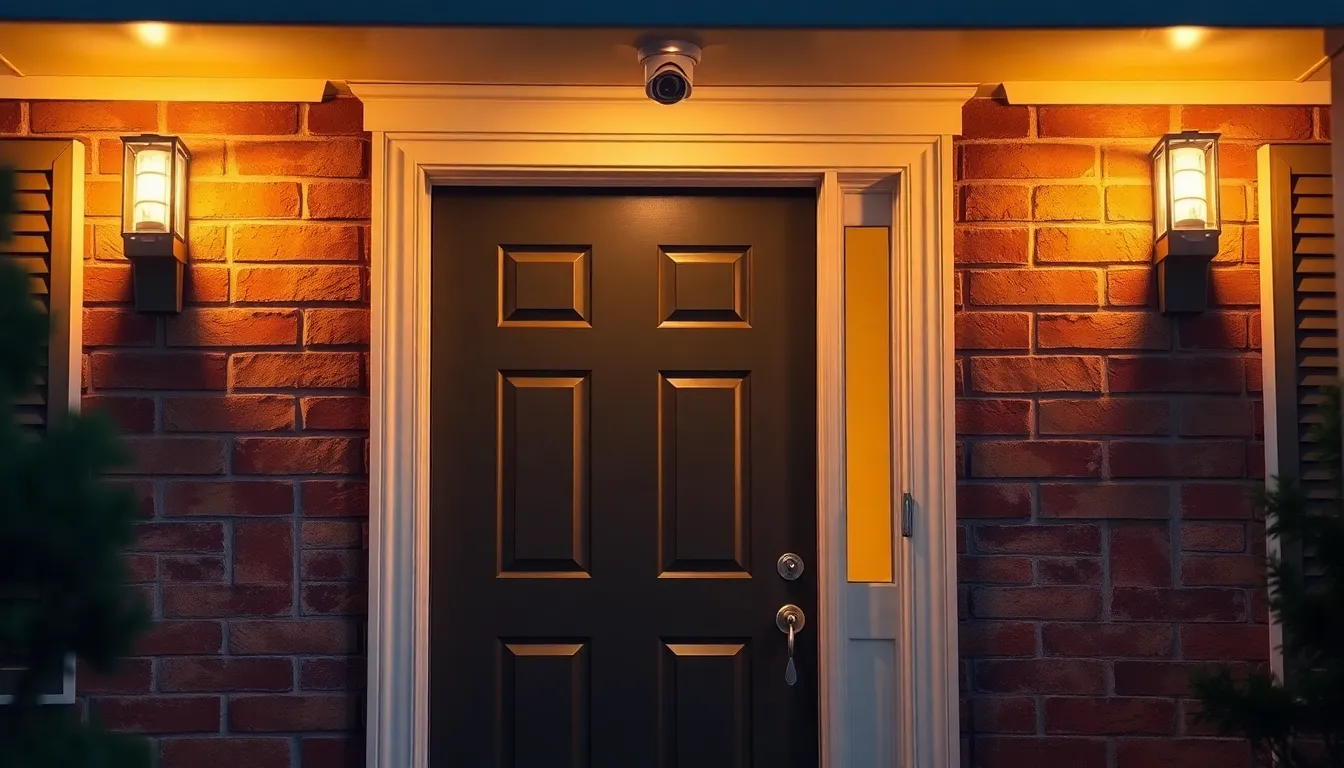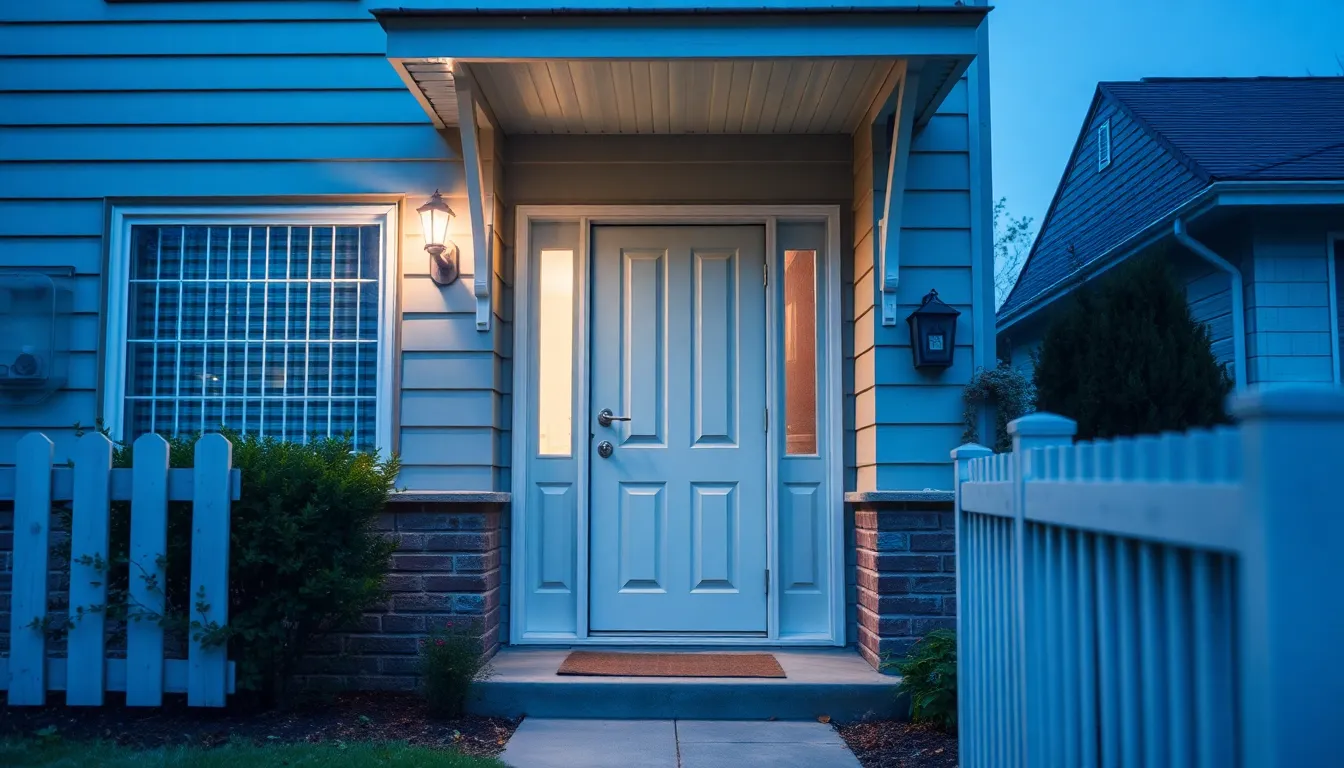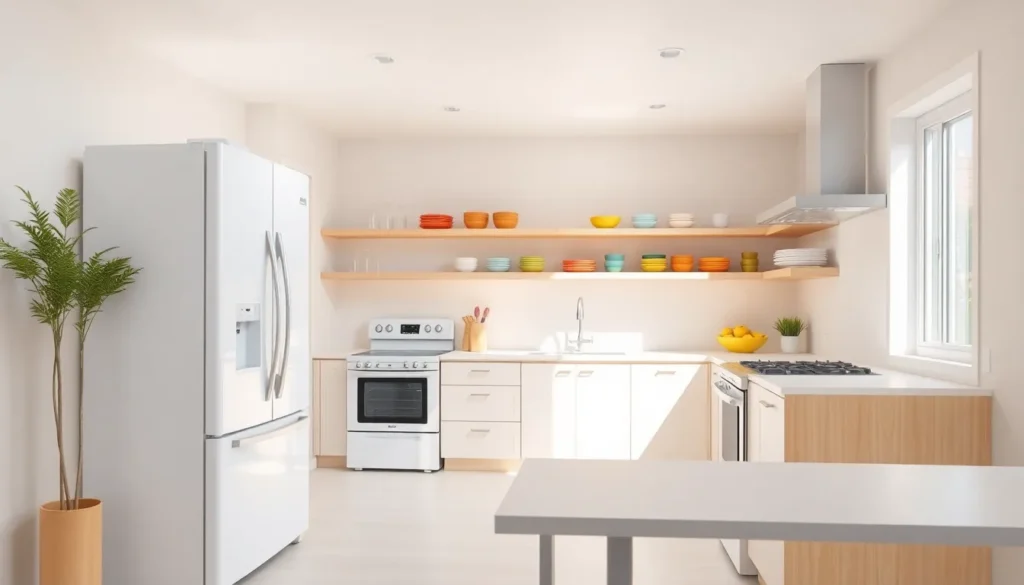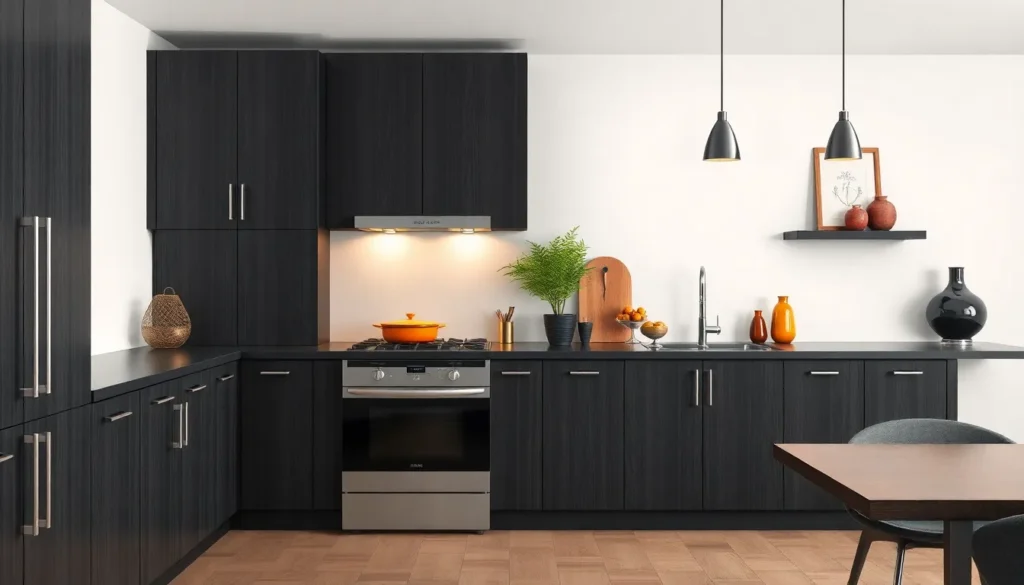In an ever-changing world, ensuring the safety of one’s home is more crucial than ever. With rising crime rates and increasing awareness of personal safety, homeowners are now prioritizing effective security measures. It’s not just about protecting belongings; it’s about creating a sanctuary where families can feel secure.
From advanced technology like smart cameras to traditional methods such as solid locks and neighborhood watch programs, there’s a plethora of options available. Understanding these home security measures can empower homeowners to make informed decisions that best suit their needs and lifestyles. By taking proactive steps, they can significantly enhance their peace of mind.
Table of Contents
ToggleImportance Of Home Security Measures
Home security measures play a crucial role in protecting families and valuables. Effective home security reduces the risk of burglary and creates a sense of safety. With crime rates on the rise, implementing robust security strategies becomes essential.
Protection Against Intruders
Secure homes deter burglars. Implementing measures such as reinforced doors and windows, alarm systems, and surveillance cameras significantly decreases the likelihood of break-ins. Statistics show that 60% of attempted burglaries occur in unlocked areas.
Safety for Residents
Strong security measures safeguard residents. When a home is fortified, occupants experience increased peace of mind, knowing they are less vulnerable to threats. For instance, smart lighting can simulate occupancy, discouraging potential burglars.
Insurance Benefits
Home security systems often lead to lower insurance premiums. Insurers recognize the reduced risk of loss and may offer discounts for properties equipped with security devices. Homeowners can save significantly over time by investing in security systems.
Community Assurance
Neighborhoods with visible security measures foster community trust. When individuals take steps to secure their homes, it encourages neighbors to do the same, leading to a collective effort in crime prevention. Programs like neighborhood watch can enhance community vigilance.
Long-term Value
Increased home security contributes to long-term property value. Homes with advanced security systems attract potential buyers. A well-secured home reflects care for safety, making it more desirable in the real estate market.
By prioritizing home security measures, individuals create a safer environment for themselves and their families while enhancing the value of their property and fostering a secure community.
Types Of Home Security Measures


Home security measures encompass various strategies to safeguard properties and ensure family safety. These measures include physical security components, cybersecurity protections, and modern monitoring systems.
Physical Security
Physical security focuses on deterring unauthorized access to the home. Common elements include:
- Deadbolt Locks: Reinforce entry points with robust deadbolt locks on doors and windows.
- Reinforced Doors: Install solid-core doors or metal doors for increased resistance against break-ins.
- Window Security Film: Apply security film on windows to reinforce glass and prevent easy shattering.
- Fencing: Construct sturdy fences with locked gates to limit access and enhance privacy.
- Outdoor Lighting: Use motion-activated lights to illuminate entryways and deter intruders.
These components create a physical barrier that discourages potential burglars.
Cybersecurity
Cybersecurity measures protect against digital threats that may target home automation systems or personal information. Key strategies include:
- Secure Wi-Fi Networks: Utilize strong passwords and WPA3 encryption for home Wi-Fi networks to prevent unauthorized access.
- Firewalls: Install hardware or software firewalls to shield devices connected to the home network.
- Regular Software Updates: Keep all smart devices and security applications updated to address vulnerabilities and security gaps.
- Two-Factor Authentication: Implement two-factor authentication for essential accounts and home monitoring systems to enhance security.
- Surveillance Camera Security: Ensure that surveillance camera data is encrypted and stored securely to prevent unauthorized viewing.
These measures protect homes from cyber intrusions and data theft, safeguarding personal information.
Monitoring Systems
Monitoring systems provide real-time surveillance and alerts, enhancing home security. These systems include:
- Alarm Systems: Install alarm systems that activate with unauthorized entry or tampering, sending alerts to homeowners or security services.
- Smart Cameras: Use smart cameras equipped with motion sensors and night vision capabilities for comprehensive monitoring.
- Mobile App Integration: Choose systems that allow remote monitoring via mobile applications, enabling homeowners to check security statuses while away.
- Professional Monitoring Services: Opt for professional monitoring services that provide 24/7 surveillance and rapid response options in case of emergencies.
- DIY Security Kits: Consider DIY security kits for customizable home security solutions, allowing flexibility in setup and configuration.
These systems enhance residents’ awareness and readiness, further deterring criminal activity.
How To Implement Home Security Measures
Implementing home security measures involves assessing vulnerabilities, selecting appropriate products, and devising a strategic plan. Following these steps ensures a more secure living environment.
Assessing Your Home’s Vulnerabilities
Identifying weak points in the home is essential. Conduct a thorough inspection of entry points, including doors and windows. Check for outdated locks or gaps in the structure. Consider the following vulnerabilities:
- Doors: Weak wooden doors may require reinforcement with a solid core or metal enhancements.
- Windows: Single-pane glass allows easy break-ins. Upgrade to reinforced double-pane glass or consider window security film.
- Outdoor Areas: Dark areas may provide cover for intruders. Evaluate the effectiveness of outdoor lighting to eliminate shadows.
Assessing these vulnerabilities helps to understand where to focus security improvements.
Choosing The Right Security Products
Selecting effective security products requires careful consideration. Focus on both physical and technological elements for a comprehensive approach. Key products include:
- Locks: Invest in high-quality deadbolts with anti-drill features.
- Cameras: Opt for smart surveillance cameras with night vision and motion detection capabilities.
- Alarms: Choose alarm systems that provide real-time notifications and integration with smart home devices.
- Fencing: Install sturdy fencing with security spikes to deter unauthorized access.
Choosing the right combination of security products enhances the overall effectiveness of the security strategy.
Creating A Security Plan
Developing a robust security plan ensures the efficient implementation of measures. Include the following components in the plan:
- Routine Checks: Schedule regular checks of all security devices to ensure functionality.
- Emergency Contacts: Compile a list of local authorities and emergency contacts for quick access during incidents.
- Community Involvement: Engage with neighbors to establish a neighborhood watch program for collective vigilance.
- Training: Educate family members on security protocols and response actions in case of a security breach.
Creating a well-structured security plan significantly improves preparedness against potential threats.
Tips For Maintaining Home Security Measures
Regular maintenance of security measures enhances effectiveness and safety. Consistently updating and engaging with the community builds a more secure environment.
Regular Updates And Upgrades
Regular updates and upgrades to security systems maximize their effectiveness. Homeowners should install the latest software for smart devices, ensuring they protect against emerging cybersecurity threats. Utilizing enhanced security features, such as updated camera firmware and software, offers better surveillance capabilities. Furthermore, replacing outdated locks and alarm systems improves physical security. Routine inspections of all security elements help identify any vulnerabilities requiring immediate attention.
Community Involvement
Community involvement fosters a safer neighborhood atmosphere. Homeowners can participate in local neighborhood watch programs, enhancing collective security efforts. Sharing information about suspicious activities encourages vigilance among residents. Organizing community meetings about safety measures and best practices in crime prevention strengthens awareness. Additionally, collaborating with local law enforcement increases access to crime statistics and safety resources.
Emergency Preparedness
Emergency preparedness enhances family safety during unforeseen events. Homeowners should develop a comprehensive emergency plan that outlines actions for various scenarios, such as burglaries or severe weather events. Keeping essential emergency contact information visible and accessible is crucial for quick responses. Conducting regular safety drills with family members ensures everyone understands the procedures. Stocking emergency supplies, such as flashlights and first-aid kits, provides reassurance during crises.









